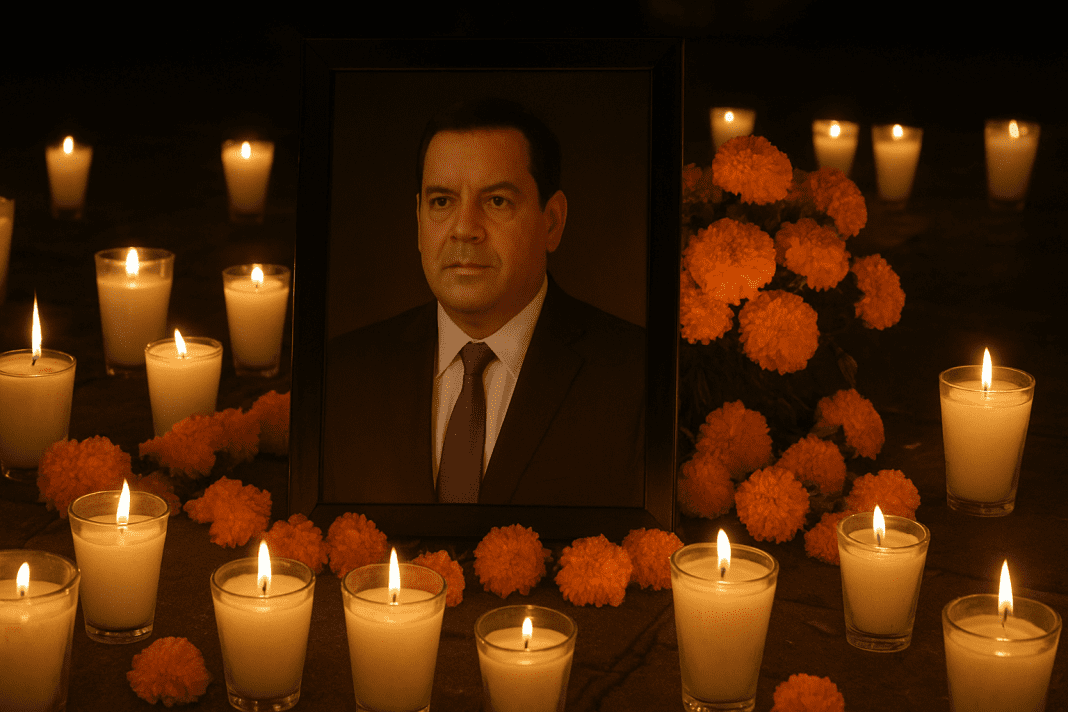Mexico has been shaken by a new wave of violence following the assassination of a local mayor during Day of the Dead celebrations. The killing has once again drawn attention to the growing power of criminal groups in Michoacán—a state long scarred by cartel control—and raised fears of foreign intervention.
Michoacán Erupts in Anger after Mayor’s Assassination
During a crowded festival on November 1 in the main square of Uruapan, in the troubled state of Michoacán, gunmen shot Mayor Carlos Alberto Manzo Rodríguez dead. The attack struck residents who had gathered to honor their departed loved ones, turning the peaceful celebration into chaos, witnesses said.
Police quickly responded and shot the attacker, a 17-year-old reportedly under the influence of methamphetamine. Investigators believe members of the Jalisco New Generation Cartel, one of Mexico’s most feared criminal organizations, paid the teenager to carry out the attack. In August, local authorities arrested a cartel leader in Uruapan known as “El Rhino,” who allegedly ran cartel operations in the area.
Terror returns to Sinaloa — 13 cartel gunmen killed in one of Mexico’s deadliest clashes this year
The mayor had long criticized organized crime. He had spoken out publicly about the growing influence of drug cartels that control local economies, intimidate communities, and challenge state power. His assassination has sparked anger and grief across Michoacán.
The next day, hundreds of protesters filled the streets of Morelia, the state capital, demanding justice and accusing local officials of failing to protect citizens. Some protesters called for the resignation of the state governor, saying the government had lost control of the region. A small group stormed the Government Palace, damaging property before police restored order.
In response, Mexico’s president announced a new “Michoacán Plan for Peace and Justice.” The plan promises more police presence and federal coordination to restore calm to the state, which has long been a center of cartel activity.
Cartels Tighten Their Grip on Michoacán Communities
The killing of the Uruapan mayor was not an isolated act. In fact, just two weeks earlier, another community leader was found dead in Michoacán’s Apatzingan Valley, a key lime-growing region. He had been campaigning against criminal groups that extort farmers and use agriculture to hide illicit operations.
For years, Michoacán has been one of Mexico’s most violent states. Moreover, rival cartels continue to fight over drug routes, farmland, and local trade, turning once-peaceful towns into battlegrounds. Consequently, many families have been displaced by the ongoing conflict.
New 50% tariff in Mexico threatens Tesla and BYD’s electric vehicle sales
The government has deployed troops and introduced social programs to restore order; however, violence in Michoacán remains widespread. Additionally, corruption and cartel profits have kept criminal networks strong despite repeated security efforts.
With local leaders now targeted, residents increasingly fear that cartels are growing more powerful. Therefore, the public assassination of a mayor highlights how deeply organized crime has embedded itself in Michoacán’s communities.
Talk of US Military Action Raises Alarm
As cartel violence surges in Mexico, discussions in the United States about possible military action have stirred controversy. In particular, reports suggest that some officials in Washington are considering missions to strike cartel targets inside Mexico. These could involve drone attacks and special operations units, potentially impacting areas like Michoacán, where criminal activity is widespread.
Meanwhile, the Mexican government has strongly rejected any foreign military presence, calling it a violation of national sovereignty. Officials emphasized that Mexicans must handle security issues and therefore warned against outside interference.
Earlier this year, the US government designated several Mexican cartels as “foreign terrorist organizations,” including the Sinaloa Cartel, the Jalisco New Generation Cartel, the Gulf Cartel, the Northeast Cartel, and the New Familia Michoacana.
As a result, US authorities can now target the cartels’ finances and leadership more aggressively. Supporters argue that both nations need to cooperate across borders since drug trafficking affects them directly. However, critics caution that military action could escalate tensions and put civilians at risk, especially in states like Michoacán, where cartels maintain deep influence.
Many Mexicans are uneasy about the prospect of foreign troops on their soil, recalling past interventions. Yet, with killings continuing weekly, pressure mounts for a solution to restore safety. Furthermore, the assassination of the Uruapan mayor has highlighted the danger and boldness of criminal networks, showing how even public events and festivals are no longer safe.
Consequently, as Michoacán mourns its losses, the nation watches anxiously, confronting a grim reality: the fight against organized crime is entering a perilous new stage, and the specter of international conflict now looms over one of Mexico’s most violent regions.

